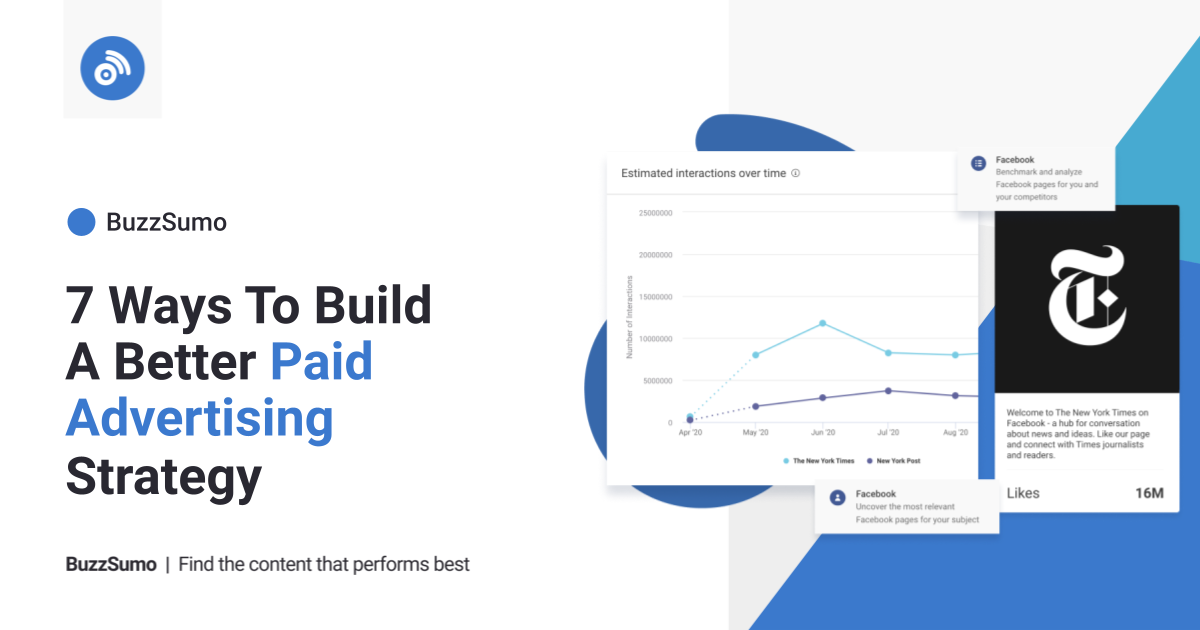Paid Search Advertising – “How to Build a Winning Strategy for Paid Search Advertising” – Paid Search Advertising – How to Build a Winning Strategy for Paid Search Advertising sets the stage for an intriguing exploration into the world of digital marketing. This strategy has become essential for businesses looking to enhance their online visibility and drive targeted traffic to their websites. As the landscape of online advertising continues to evolve, understanding the intricacies of paid search not only empowers marketers but also opens the door to achieving significant ROI.
In today’s global marketplace, mastering paid search advertising involves more than just setting a budget; it requires a keen understanding of audience targeting, selection, and ad copy optimization. With competition increasing, developing a winning strategy is key to standing out and effectively reaching potential customers when they are most likely to convert.

In the ever-evolving landscape of technology, the emergence of artificial intelligence (AI) has revolutionized various sectors, creating opportunities and challenges that shape the way we live and work. From healthcare to finance, the integration of AI has enhanced efficiency, optimized operations, and provided insights that were previously unimaginable. This article delves into the multifaceted impact of AI, exploring its applications, benefits, challenges, and future implications.The journey of AI began in the mid-20th century, with pioneers like Alan Turing and John McCarthy laying the groundwork for what would become a significant technological phenomenon.
Turing’s work on machine learning and problem-solving opened the door to the development of algorithms that could mimic human thought processes. Fast forward to today, AI encompasses a range of technologies, including machine learning, natural language processing, and computer vision, each contributing to the broader narrative of intelligent machines.One of the most significant benefits of AI is its ability to process vast amounts of data at lightning speed.
In sectors like healthcare, AI algorithms can analyze medical records, imaging data, and genetic information, leading to more accurate diagnoses and personalized treatment plans. For instance, AI has proven invaluable in detecting diseases such as cancer at earlier stages, where intervention can make a substantial difference in patient outcomes. Furthermore, AI-driven tools like chatbots have transformed patient interactions, offering immediate responses and support outside traditional office hours.In the realm of finance, AI has become a cornerstone for risk assessment and fraud detection.
Algorithms can analyze transaction patterns, flagging anomalies that human analysts might overlook. This capability not only enhances security but also streamlines the decision-making process, allowing financial institutions to respond to threats with greater agility. Robo-advisors, powered by AI, provide personalized investment advice by analyzing individual risk profiles and market trends, democratizing access to financial planning for a broader audience.The retail industry, too, has harnessed the power of AI to enhance customer experiences.
Through data analysis and predictive analytics, businesses can foresee trends, manage inventory more effectively, and tailor marketing strategies to meet consumer needs. AI-driven recommendation systems, like those used by e-commerce giants, analyze customer behavior to suggest products, ultimately increasing sales and customer satisfaction. This personalization not only fosters loyalty but also transforms the shopping experience into a more intuitive journey for consumers.Despite its numerous advantages, the rise of AI also presents significant challenges that cannot be overlooked.
One of the primary concerns revolves around job displacement. As automation becomes more prevalent, many fear that traditional jobs may become obsolete, leading to increased unemployment rates. While it is true that AI will replace certain roles, it is also essential to recognize that it will create new opportunities in fields such as AI development, maintenance, and oversight. The challenge lies in preparing the workforce for this transition, ensuring that workers possess the necessary skills to thrive in an AI-driven economy.Another pressing issue is the ethical implications of AI.
The algorithms that govern AI systems can inadvertently perpetuate biases present in the data used to train them. This has led to concerns about fairness, accountability, and transparency in AI decision-making processes. For instance, AI used in hiring practices might favor candidates based on historical data that reflects existing prejudices, thereby reinforcing societal inequalities. To address these challenges, it is crucial for organizations to implement ethical guidelines and frameworks that prioritize fairness and inclusivity in AI development.Moreover, the question of data privacy looms large in the AI conversation.
As AI systems rely heavily on vast amounts of data, often sourced from individuals, the potential for misuse and breaches of privacy is a significant concern. Striking a balance between leveraging data for innovation and protecting individual privacy rights is imperative. Legislative efforts, such as the General Data Protection Regulation (GDPR) in Europe, aim to provide guidelines on data usage, yet the rapid pace of technological advancement often outstrips regulatory frameworks.Looking ahead, the future of AI appears promising yet complex.
The potential for AI to drive innovation and efficiency is immense, but it must be approached with caution and responsibility. Collaboration between governments, tech companies, and civil society will be crucial in shaping policies that govern the development and deployment of AI technologies. It is essential to foster an environment that encourages innovation while safeguarding public interests.In conclusion, AI represents a transformative force that is reshaping our world in myriad ways.
Its applications across various sectors have demonstrated its potential to enhance efficiency, improve outcomes, and create new opportunities. However, as we embrace the advancements brought by AI, we must remain vigilant about the ethical, social, and economic implications that accompany this technology. By fostering open dialogues and collaborative efforts, we can navigate the challenges ahead, ensuring that AI serves as a tool for progress rather than a source of division.
The journey into the future of artificial intelligence is just beginning, and its trajectory will depend on our collective choices today.


